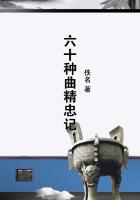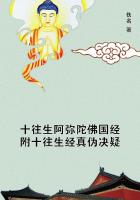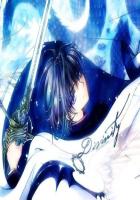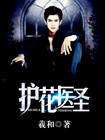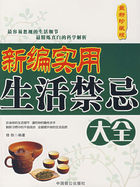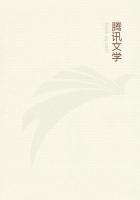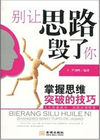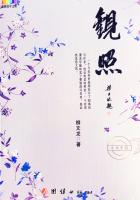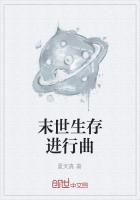Of these false prophets the most remarkable in recent times was a man who called himself Ivan Grigorief, a mysterious personage who had at one time a Turkish and at another an American passport, but who seemed in all other respects a genuine Russian. Some years previously to my visit he appeared at Alexandrof-Hai. Though he professed himself to be a good Molokan and was received as such, he enounced at the weekly meetings many new and startling ideas. At first he simply urged his hearers to live like the early Christians, and have all things in common. This seemed sound doctrine to the Molokanye, who profess to take the early Christians as their model, and some of them thought of at once abolishing personal property; but when the teacher intimated pretty plainly that this communism should include free love, a decided opposition arose, and it was objected that the early Church did not recommend wholesale adultery and cognate sins. This was a formidable objection, but "the prophet" was equal to the occasion. He reminded his friends that in accordance with their own doctrine the Scriptures should be understood, not in the literal, but in the spiritual, sense--that Christianity had made men free, and every true Christian ought to use his freedom.
This account of the new doctrine was given to me by an intelligent Molokan, who had formerly been a peasant and was now a trader, as I
sat one evening in his house in Novo-usensk, the chief town of the district in which Alexandrof-Hai is situated. It seemed to me that the author of this ingenious attempt to conciliate Christianity with extreme Utilitarianism must be an educated man in disguise.
This conviction I communicated to my host, but he did not agree with me.
"No, I think not," he replied; "in fact, I am sure he is a peasant, and I strongly suspect he was at some time a soldier. He has not much learning, but he has a wonderful gift of talking; never have I
heard any one speak like him. He would have talked over the whole village, had it not been for an old man who was more than a match for him. And then he went to Orloff-Hai and there he did talk the people over." What he really did in this latter place I never could clearly ascertain. Report said that he founded a communistic association, of which he was himself president and treasurer, and converted the members to an extraordinary theory of prophetic succession, invented apparently for his own sensual gratification.
For further information my host advised me to apply either to the prophet himself, who was at that time confined in the gaol on a charge of using a forged passport, or to one of his friends, a certain Mr. I---- , who lived in the town. As it was a difficult matter to gain admittance to the prisoner, and I had little time at my disposal, I adopted the latter alternative.
Mr. I---- was himself a somewhat curious character. He had been a student in Moscow, and in consequence of some youthful indiscretions during the University disturbances had been exiled to this place. After waiting in vain some years for a release, he gave up the idea of entering one of the learned professions, married a peasant girl, rented a piece of land, bought a pair of camels, and settled down as a small farmer. He had a great deal to tell about the prophet.
Here for the first time I saw camels used for agricultural purposes. When yoked to a small four-wheeled cart, the "ships of the desert" seemed decidedly out of place.
Grigorief, it seemed, was really simply a Russian peasant, but he had been from his youth upwards one of those restless people who can never long work in harness. Where his native place was, and why he left it, he never divulged, for reasons best known to himself. He had travelled much, and had been an attentive observer. Whether he had ever been in America was doubtful, but he had certainly been in Turkey, and had fraternised with various Russian sectarians, who are to be found in considerable numbers near the Danube. Here, probably, he acquired many of his peculiar religious ideas, and conceived his grand scheme of founding a new religion--of rivalling the Founder of Christianity! He aimed at nothing less than this, as he on one occasion confessed, and he did not see why he should not be successful. He believed that the Founder of Christianity had been simply a man like himself, who understood better than others the people around him and the circumstances of the time, and he was convinced that he himself had these qualifications. One qualification, however, for becoming a prophet he certainly did not possess: he had no genuine religious enthusiasm in him--nothing of the martyr spirit about him. Much of his own preaching he did not himself believe, and he had a secret contempt for those who naively accepted it all. Not only was he cunning, but he knew he was cunning, and he was conscious that he was playing an assumed part. And yet perhaps it would be unjust to say that he was merely an impostor exclusively occupied with his own personal advantage. Though he was naturally a man of sensual tastes, and could not resist convenient opportunities of gratifying them, he seemed to believe that his communistic schemes would, if realised, be beneficial not only to himself, but also to the people. Altogether a curious mixture of the prophet, the social reformer, and the cunning impostor!
Besides the Molokanye, there are in Russia many other heretical sects. Some of them are simply Evangelical Protestants, like the Stundisti, who have adopted the religious conceptions of their neighbours, the German colonists; whilst others are composed of wild enthusiasts, who give a loose rein to their excited imagination, and revel in what the Germans aptly term "der hohere Blodsinn." I cannot here attempt to convey even a general idea of these fantastic sects with their doctrinal and ceremonial absurdities, but I may offer the following classification of them for the benefit of those who may desire to study the subject:

